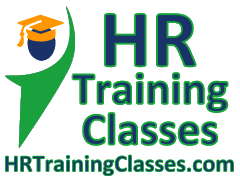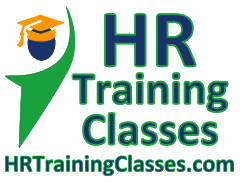Instructor: Elga Lejarza, aPHR, PHR, SHRM-CP, SPHR, GPHR, SHRM-SCP
Continuing Education Credits: HRCI – 14 HR(General) Credits • SHRM – 14 PDC’s
Schedule: 10:00 AM – 6:00 PM Eastern Time on Both Days (Detailed Agenda Below)
Program Overview
The HR Manager Certificate Program is a comprehensive two-day course designed to equip new and experienced HR professionals with the practical knowledge and skills needed to excel in today’s challenging business landscape. From managing employee relations and performance appraisals to understanding compensation and benefits, our program delivers insightful learning on crucial HR functions. Our program also emphasizes the importance of compliance with laws and regulations, including the implementation of Affirmative Action Plans, ensuring you are well-prepared to safeguard your organization against potential legal liability.
Key Features
- Comprehensive curriculum covering a broad range of key HR functions.
- Delivered over two interactive days for optimal understanding and retention.
- Course materials designed by leading HR experts.
- Addresses current HR issues and potential legal pitfalls.
- Provides a certificate upon completion to enhance your professional profile.
Program Objectives
By the end of this program, participants will be able to:
- Understand and manage the complexities of HR functions.
- Protect their organization from potential legal liability.
- Demonstrate mastery of best HR practices.
- Bolster their career by earning a prestigious HR Manager Certificate.
Topics Covered
- Understanding HR Management: This module begins by exploring the strategic importance of HR management within an organization. We delve into the history, key terms, and pivotal roles and responsibilities in the HR realm, providing participants with a solid foundation in human resources.
- Employee Relations and Performance Management: Participants will learn the ins and outs of effective employee relationship management and performance appraisals. We delve into the various types of performance management systems, their benefits, how to set effective goals, and how to provide feedback and coaching.
- Compensation and Benefits: This module dissects pay policy decisions, compensation strategies, and their impact on employee motivation. Participants will learn about different types of compensation, benefits packages, and the role of healthcare and retirement plans.
- Data and HR Management: An introduction to the role of big data and analytics in HR functions is provided, focusing on the value and types of data HR professionals should pay attention to. Participants will learn effective data collection, analysis, and presentation techniques to drive decision-making.
- Employee Selection and Hiring: This section focuses on the crucial stages of employee selection, including performing a job analysis, conducting effective interviews, background checks, and the legal compliance issues that arise in the process.
- Compliance with FMLA and ADA: Here, participants gain a thorough understanding of HR responsibilities under the Family and Medical Leave Act and the Americans with Disabilities Act. We explain FMLA definitions, timing requirements, leave options, and employer obligations for job reinstatement. We also explore the ADA interactive process and its interplay with workers’ compensation.
- Preventing Sexual and Unlawful Harassment: In this module, we discuss the essential aspects of anti-harassment policies, the legal implications, and the importance of training. We walk participants through conducting effective investigations, maintaining confidentiality, and implementing appropriate corrective action.
- FLSA and Wage and Hour Issues: Participants will understand how to avoid misclassification of employees, define compensable time, and determine obligations for payment of overtime. We also delve into areas like the compensability of after-hours smartphone use and preliminary and postliminary activities.
- Affirmative Action Plans: This section covers the key aspects of creating, implementing, and maintaining Affirmative Action Plans. It addresses self-audits, the principle of good faith efforts, handling audits by the Office of Federal Contract Compliance Programs, and the role of Affirmative Action in hiring, promotion, and termination.
- Policy-Making and Talent Management: In this final module, participants will learn about effective HR policy-making, the role of HR policies in organizational success, and how they shape company culture. We also delve into the realm of talent management and career development, discussing talent acquisition, retention strategies, career paths, and succession planning.
In the HR Manager Certificate Program, each topic is designed to build upon the previous, providing a comprehensive and detailed understanding of the HR landscape, critical for any HR professional looking to advance their career and make a significant impact in their organization.
Target Audience
- Aspiring HR Managers: Individuals aiming to advance their careers into HR management roles.
- Current HR Managers: HR professionals seeking to update their skills and knowledge to keep pace with the latest HR trends and best practices.
- Senior HR Practitioners: Experienced HR professionals looking to refresh their knowledge and stay current in their field.
- HR Generalists and Specialists: Those looking to broaden their understanding of HR management and transition into managerial roles.
- Small Business Owners: Entrepreneurs who manage their own HR functions and want to improve their HR management skills.
- Line Managers and Supervisors: Non-HR professionals responsible for HR functions within their departments.
- HR Consultants: Independent consultants seeking to enhance their credentials and expertise in HR management.
- HR Graduates: Recent graduates in HR or related fields looking to strengthen their practical knowledge and gain a competitive edge in the job market.
- Talent Acquisition Managers: Professionals focusing on recruitment and staffing interested in expanding their HR management skills.
- Employee Relations Managers: Those specializing in employee relations looking to gain a broader perspective on HR management.
- Learning and Development Professionals: Individuals responsible for training and development within organizations, seeking to understand broader HR management practices.
- Organizational Development Professionals: Those involved in shaping organizational structure and culture who wish to deepen their understanding of HR’s strategic role.
- Payroll and Benefits Administrators: Professionals in these specialized areas looking to gain a more holistic view of HR management.
- Diversity and Inclusion Officers: Professionals who want to integrate their specialization with broader HR management strategies.
- HR Compliance Officers: Individuals responsible for ensuring that HR policies and practices comply with legal and regulatory standards.
- Change Management Specialists: Professionals who deal
Agenda
Day 1:
10:00 am – 11:30 am: Fundamentals of HR Management and Employee Relations
- Introduction to the fundamentals of HR management.
- Importance of strategic HR management in today’s business landscape.
- Exploration of employee relationship management: from the definition to real-world applications.
- Detailed discussion on performance appraisals: methods, common challenges, and best practices.
11:30 am – 11:45 am: Break
11:45 am – 1:00 pm: Compensation, Benefits and their Importance in HR Management
- Understanding pay policy decisions: legal considerations and ethical implications.
- Overview of compensation strategies: how to ensure competitiveness and internal fairness.
- Deep dive into benefits packages: types, benefits to the organization, and latest trends.
- Role of healthcare and retirement plans in benefits packages.
1:00 pm – 2:00 pm: Lunch
2:00 pm – 3:30 pm: Embracing Data in HR and Effective Employee Selection & Hiring
- Introduction to the role of big data and analytics in HR: from predictive analytics to employee sentiment analysis.
- Deep dive into the stages of employee selection: job analysis, recruitment, selection, and onboarding.
- Overview of effective interviewing techniques: behavioral interviewing, STAR method, and avoiding unconscious bias.
3:30 pm – 3:45 pm: Break
3:45 pm – 6:00 pm: Compliance with FMLA and ADA: Ensuring Employee Rights and Employer Obligations
- Understanding HR responsibilities under FMLA and ADA: basic requirements and common pitfalls.
- Detailed discussion on FMLA definitions, timing requirements, and leave options: practical applications and case studies.
- Employer obligations for job reinstatement under FMLA: when and how to do it.
- Understanding and implementing the ADA interactive process and its interplay with workers’ compensation.
Day 2:
10:00 am – 11:30 am: Preventing Sexual and Unlawful Harassment: Building Respectful Workplace Culture
- Detailed overview of the essential aspects of anti-harassment policies: key components, legal implications, and ensuring compliance.
- The importance of anti-harassment training: common topics, delivery methods, and measuring effectiveness.
- Techniques on conducting effective harassment investigations: planning, execution, and follow-up.
- Confidentiality during investigations: legal requirements and best practices for protecting witnesses from retaliation.
11:30 am – 11:45 am: Break
11:45 am – 1:00 pm: Navigating FLSA and Wage & Hour Issues
- Deep dive into how to avoid misclassification of employees: exempt vs. non-exempt, and independent contractors.
- Defining compensable time under the FLSA: breaks, travel time, and on-call status.
- Understanding obligations for payment of overtime: regular rate of pay, bonuses, and compensability of after-hours smartphone use.
1:00 pm – 2:00 pm: Lunch
2:00 pm – 3:30 pm: Constructing and Implementing Effective Affirmative Action Plans
- Key aspects of creating Affirmative Action Plans: legal requirements, setting goals, and implementing actions.
- Effective implementation and maintenance of Affirmative Action Plans: communication, training, and monitoring progress.
- Conducting self-audits: identifying potential problem areas and taking corrective action.
- The principle of good faith efforts and handling audits by the Office of Federal Contract Compliance Programs (OFCCP).
3:30 pm – 3:45 pm: Break
3:45 pm – 6:00 pm: HR Policy-Making and Talent Management for Future Organizational Success
- Understanding effective HR policy-making: developing, implementing, and reviewing policies.
- Role of HR policies in organizational success: setting expectations, promoting consistency, and reducing legal risks.
- Introduction to talent management and career development: definitions, benefits, and business cases.
- Deep dive into talent management strategies: talent acquisition, retention strategies, career paths, and succession planning.

